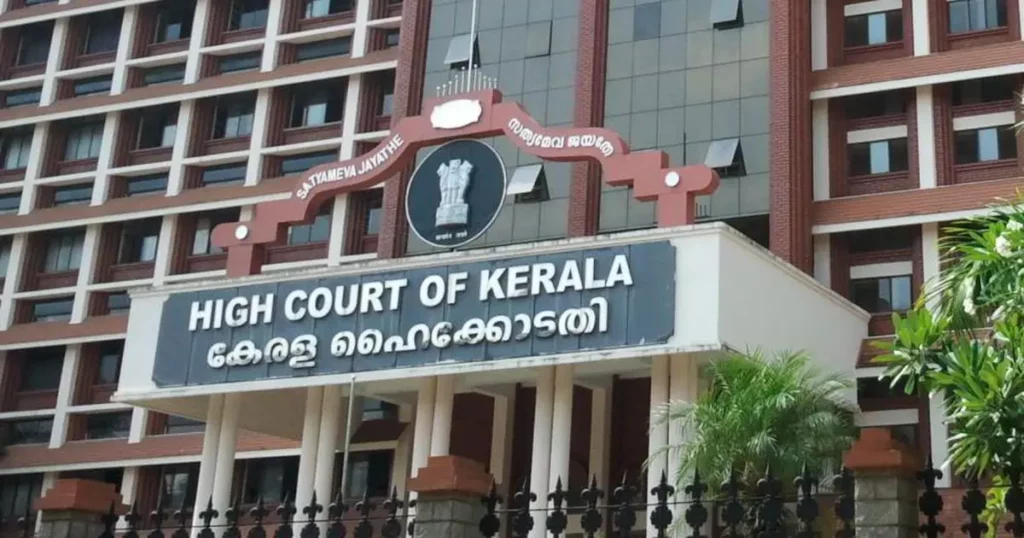The HIGH COURT OF KERALA recently delivered a judgment emphasizing the active role Motor Accidents Claims Tribunals (MACT) must play in adjudicating compensation claims. Justice V.G. Arun, in the case of Joby George vs. Siby Valloran [MACA No.4084 of 2019], stressed that MACTs cannot simply accept presented evidence at face value but should take a proactive approach to ensure fair and accurate compensation for accident victims.
Tribunals Empowered to Seek Second Opinions on Disability Certificates
The case centered on Joby George, who sustained injuries in a road accident in October 2013. He filed a claim with the MACT seeking compensation of ₹24,98,000. However, the Tribunal awarded him a significantly lower amount of ₹3,47,000. Mr. George challenged this award on two grounds:
-
Incorrect Assessment of Monthly Income: The Tribunal had considered his monthly salary to be ₹10,000, whereas he argued it was ₹35,000, impacting the compensation amount.
-
Unilateral Reduction of Disability Percentage: Mr. George presented a disability certificate indicating a 21% disability, but the Tribunal reduced it to 12% without justification.
Justice Arun highlighted a crucial aspect – the power of MACTs to seek second opinions on disability certificates. He referred to a government order (G.O(P) No.161/97/H&FWD) and Rule 387 of the Motor Vehicles Rules, 1989. These provisions empower Tribunals to:
- Order a second examination by a medical officer in a government hospital or medical college.
- Direct a medical board to assess the injured person’s disability and issue a certificate.
This ensures unbiased and accurate disability assessments, critical for determining compensation.
Also Read Understanding Section 110 of IPC: Legal Implications and Case Studies
Scrutinizing the Grounds for Appeal
The Court delved into the specific arguments raised by Mr. George:
-
Monthly Income: Mr. George failed to produce concrete proof of his income. The Court, therefore, upheld the Tribunal’s decision on this point.
-
Disability Percentage: Here, the Court raised concerns. The Tribunal had reduced the disability percentage without providing a clear reason, relying solely on Mr. George not examining the doctor who issued the initial certificate.
Justice Arun cited the judgment in Union of India and Another vs. Talwinder Singh (2012), emphasizing the importance of giving due weight to the opinion of an expert medical board. In this case, the Tribunal should have considered the original disability certificate seriously, especially considering the G.O. mandate for unbiased assessments by specialists.
Court’s Recalculation and Enhanced Compensation
Given the lack of justification for reducing the disability percentage, the Court directed the MACT to accept the 21% disability as certified. This revision led to a recalculation of compensation, resulting in a significantly higher amount awarded to Mr. George.
Also Read The Evolution and Strength of the Indian Army: A Look at Regiment 112
Key Takeaways for Accident Victims and MACTs
This judgment offers valuable insights for both accident victims and MACTs:
-
Accident Victims: This case underscores the importance of gathering strong evidence to support your claim. This includes documentation of income, medical expenses, and disability certificates from qualified medical professionals.
-
Motor Accidents Claims Tribunals: The Court’s emphasis on a proactive approach requires MACTs to critically examine presented evidence. They should not hesitate to utilize their powers to seek second opinions on disability certificates, ensuring fair and accurate assessments for accident victims.
Empowering MACTs for Fair Compensation
The Kerala High Court’s judgment empowers MACTs to actively participate in the claims process. By encouraging them to seek second opinions on disability certificates and scrutinize evidence, the Court paves the way for more just compensation awards for accident victims in Kerala. This proactive approach ensures that the true extent of injuries and their impact on earning potential are accurately reflected in compensation amounts.

